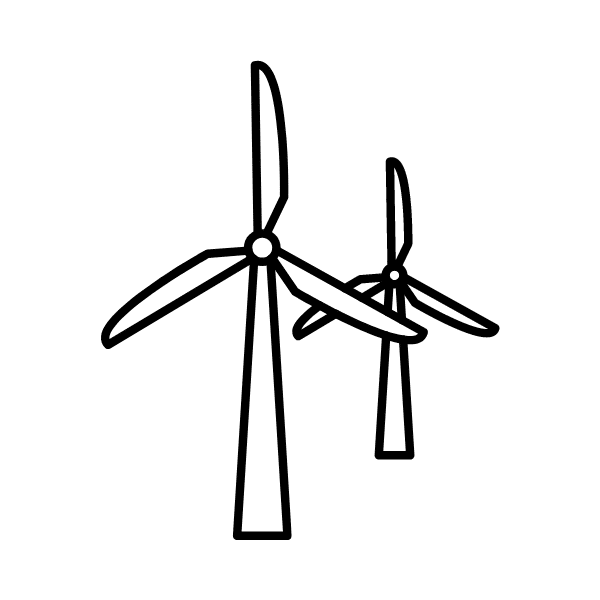
How can we drive the shift from fossil fuels to renewables?
From cars and streetlights to home appliances and cell phones, we are unable to find quiet, as there seems to always be a buzz surrounding us. This buzz is the hum of energy working to power the planet. Obtaining this much energy is not easy. Fossil fuels are our primary source of energy, but we are running out. You may ask, what exactly are fossil fuels? Oil, coal, and natural gas are all examples of nonrenewable resources formed from the fossilized remains of ancient life. The organic matter that these fuels are made of is high in carbon, which emits carbon into the atmosphere when burned, polluting our air and creating health risks.
Thankfully, fossil fuels don’t have to be our only energy source. Renewable energy, such as wind, hydroelectric, and solar, is an alternative way to power our world. These options are cleaner than fossil fuels, and we are not at risk of running out of them. In the past, technological and economic concerns limited possibilities for renewable energy, but these obstacles are rapidly disappearing. In response to new developments and advancements, solar and wind power prices have become more competitive as fossil fuel prices continue to rise.
Countries are enacting bold plans to seize this opportunity and shift toward renewable energy. China recently became the world’s largest producer of wind and solar energy but still has a long way to go in reducing its coal usage. Iceland continues to lead the way with 87% of their energy coming from renewable sources. We can all learn from these nations taking the lead!

It’s crucial to consider that the harmful impacts of fossil fuels will not affect people equally. The effects of fossil fuels will often fall primarily on already vulnerable global communities. For example, coal-rich regions, like Sumatra, an island in Indonesia, already face large amounts of air and water pollution due to the extraction of fossil fuels. In the United States, pipelines laid over Indigenous lands to transport oil and natural gas demonstrate the unjust treatment of Indigenous peoples and their land. Indigenous groups are continuing to be forcibly displaced in favor of cheaper but more polluting natural gas.
“Energy is the golden thread that connects economic growth, social equity, and environmental sustainability. As we address the energy challenge, we can create jobs, drive economic growth, and reduce global inequality, while at the same time reducing the environmental and social damage of our current energy systems.”
– Ban Ki-moon, Former Secretary General of the United Nations
In response to similar threats, activists throughout Africa, like those in the Afrika Vuka movement, oppose the extraction of their natural resources and the development of fossil fuel infrastructure, instead promoting a just transition to renewable energy sources. Movements like this are the key to unlocking a sustainable and equitable future for all.
So what’s standing in the way of utilizing innovations that can build a safer, renewable-powered world? First and foremost: money. The fossil fuel industry’s lobbying efforts and campaign contributions pit politicians against progress. The private sector is also reluctant to invest in new clean energy technologies, which is where programs such as the U.S. Energy Department’s Loans Office can step in and provide support. This makes it all the more important to use your voice, vote, campaign, advocate, and stand up for clean energy.
We talk a lot about the positives of renewables, but nothing exists in a vacuum. Just because energy is “clean” does not mean that sourcing, processing, production, and transportation have no impact on the planet or its inhabitants. An eco-friendly, climate-smart approach to renewables is needed. Take pollinator-friendly solar panels, as an example. Beyond generating efficient and clean energy, these go a step further in addressing the ongoing pollinator crisis by surrounding solar panels with native flowers and grasses, providing food for insects, and cultivating population growth. It’s a win-win, ensuring we receive the energy we need while promoting biodiverse environments.
While most of us are unable to choose where our energy comes from, we each have the opportunity to limit our consumption of fossil fuels. A gold star option, however, is utilizing public transportation or rideshare options. Speak to your local and state representatives and advocate for more sidewalks and bike lanes to make cities more walkable. Use energy more efficiently when at home: turn off lights, open windows instead of using A/C or heating when possible, limit how long the refrigerator door is open, and take other steps to cut consumption. We can all reduce our total energy consumption, which is critical in achieving near and long-term climate goals.
As corporations require far greater fossil fuel consumption than individuals, we must support companies that prioritize clean energy use, conservation, and measurable climate commitments. Our partner, Nature’s Path, vows to “leave the earth better than we found it.” And is doing that with six pillars of sustainability, which include reducing energy consumption and purchasing carbon credits to offset carbon usage, among other steps.
We can begin to lessen our dependence on fossil fuels and work to make them a thing of the past. Put pressure on your elected officials at all levels, local communities, businesses, and universities to limit energy use and make the shift to renewable sources. As our partner Green America outlines with in-depth research, information, news, and campaigns, we must both fight dirty energy and grow clean energy. Together, such a world is possible.
Read this article about fossil fuel racism. Then research fossil fuel plants and refineries located near your home, neighborhood, city and surrounding areas.
Look at this map of power plants in the United States or research power plants in your community if you are in a country other than the US. Identify one plant close to you and conduct research into how that plant impacts the surrounding environment.
Write a short (~150 word) summary of what you find in your research. Consider answering these two questions:
Post a powerful visual stating your findings on Instagram with a clear, concise caption. Tag @TurningGreenOrg (in the caption and image!), @GreenAmerica_ and #PGC2023.
Upload your summary and visual in a PDF document including a screenshot of your social post. Include your name (or team name), username, and school on your upload.
Submission Guidelines
Transitions to renewable energy require policy change, which means electing leaders who champion and support policies that usher in a sustainable energy future. So we must become informed about the energy platforms of our candidates and elected officials!
Research a few local, regional, or national policymaker’s stance on renewable energy. If your local politicians support renewable energy and are engaged in fighting the fossil fuel industry, pick one that you agree with and summarize their stances. Post a shoutout on Instagram about climate smart policies and policymakers tagging @TurningGreenOrg and the policymaker’s handle/s, as well as #PGC2023.
If your representatives or local leaders do not support renewable energy or have a pro-fossil fuel platform, reach out to one (or two or more!) and ask them to reconsider! Pull facts from our partner Green America’s resources. Write a clear letter in support of renewable energy with a specific ask. Send it to them via email or through their website. Post a short version of the ask on Instagram, tagging the politician/s and @TurningGreenOrg, as well as #PGC2023.
100 bonus points are yours if you receive a personal response to your message or social media post. Simply email screenshots of the correspondence (maximum of 3) to info@turninggreen.org by October 29, 2023.
Upload your responses and letter in a PDF document including a screenshot of your social post. Include your name (or team name), username, and school on your upload to be eligible to win.
Submission Guidelines
Powering our future sustainably requires innovation, out-of-the-box thinking, and a collective determination to turn away from fossil fuels. How must our society’s relationship with energy change in order to protect our planet from the harmful byproducts of extractive energy production?
Think deeply about your relationship with energy. Since we can’t physically see the energy that drives our lives, our relationship is different than that with more tangible resources like food and water. So let’s make it a bit more tangible.
For 24 hours, make a note of each and every time you consume energy. Try your best to jot down everything — from turning on lights to charging your phone, hopping on the bus to powering up your coffee maker.
Next, do your research.
Then, reflect on this activity.
Finally, create a slideshow designed to alter people’s relationship with energy using your findings and reflections. Try and give a presentation in front of a classroom or dorm if you can!
Post the slideshow (in full or in part) along with some thoughts about your relationship with energy on Instagram. If you had a chance to give your presentation to an audience, post pictures of the live presentation. Tag @TurningGreenOrg, @GreenAmerica_ and #PGC2023.
Upload your responses and a link to your slideshow in a PDF document including a screenshot of your social post. Include your name (or team name), username, and school on your upload to be eligible to win.
Submission Guidelines
Up to 10 Greener and 10 Greenest outstanding submissions will be selected as winners.

Each Greener Winner will receive:

Each Greenest Winner will receive: